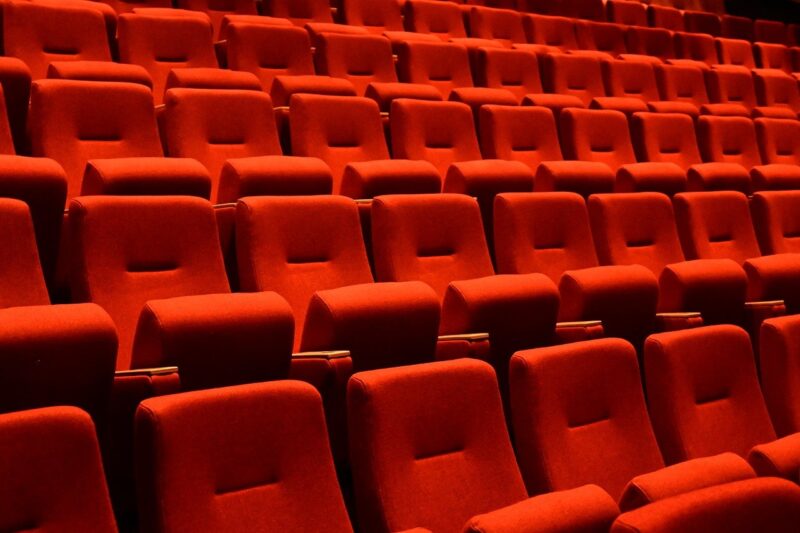Time Travel in Cinema: Exploring Movies That Allowed Us to Dream
November 18, 2024

Time travel has fascinated humanity for centuries, offering the tantalizing possibility of visiting the past or glimpsing the future. In cinema, this concept has been a rich source of storytelling, inspiring awe and wonder while exploring profound philosophical, moral, and technological questions. From hilarious comedies to intense dramas, time travel movies have captured the imagination of audiences and filmmakers alike.
1. The Allure of Time Travel
The allure of time travel stems from our innate curiosity about history and the unknown. What if you could witness historical events firsthand? What if you could measure the consequences of altering a pivotal moment in history? Time travel movies allow us to explore these questions while blending fantasy with reality, enabling audiences to both escape and reflect on their own lives and choices. As a narrative device, time travel can reveal insights about the human experience, delve into the psychology of regret, and challenge our notions of fate and free will.
2. Iconic Time Travel Movies
Let’s journey through some iconic time travel films that have shaped the genre:
- Back to the Future (1985): Directed by Robert Zemeckis, this classic film showcases Marty McFly, a teenager who accidentally travels back to 1955 in a modified DeLorean. The film’s clever mix of sci-fi, comedy, and nostalgia has made it a cultural touchstone that continues to resonate with audiences today.
- The Terminator (1984): Directed by James Cameron, this groundbreaking film features a time-traveling assassin sent from a dystopian future to kill the mother of a resistance leader. Blending action with profound questions about technology and fate, The Terminator laid the groundwork for a franchise that would explore time travel in numerous creative ways.
- 12 Monkeys (1995): Directed by Terry Gilliam, this film follows a convict sent back in time to prevent a deadly virus outbreak that decimates humanity. It explores themes of memory, insanity, and the intricacies of time loops, raising questions about the reliability of time travel and our perceptions of reality.
- Interstellar (2014): Directed by Christopher Nolan, while not a traditional time travel film, it incorporates the concept through its exploration of gravitational time dilation. The narrative follows a group of astronauts who travel through a wormhole to save humanity, crossing vast expanses of time and space in the process. The film blends scientific concepts with deep emotional narratives, showcasing the impact of time on love and sacrifice.
- Edge of Tomorrow (2014): This film features a soldier caught in a time loop, reliving the day of a battle over and over. The film combines sci-fi with action and humor while addressing the consequences of choices made in life and the importance of perseverance.
Each of these films takes a unique approach to time travel, emphasizing its versatile nature as a storytelling mechanism.
3. Analyzing Themes in Time Travel Cinema
Time travel movies often reflect deeper themes and societal concerns:
- The Paradox of Choices: Many films explore the butterfly effect and how even minor choices can have significant consequences. For instance, in Back to the Future, Marty must navigate the complexities of his parents’ relationship to ensure his own existence. These narratives invite viewers to consider the long-term effects of their decisions.
- Technology and Humanity: Films like The Terminator and Interstellar delve into the relationship between technology and humanity, pondering if advanced innovations will save or doom us. These questions often provoke meaningful discussions about ethical responsibility and the unforeseen effects of our creations.
- Nostalgia and Regret: Time travel films frequently provoke reflections on nostalgia and regret. By allowing characters to revisit their past, these films prompt audiences to evaluate their journeys, relationships, and missed opportunities. Narratives often juxtapose the carefree joys of youth against the harsh realities of adulthood, as seen in The Time Traveler’s Wife (2009).
4. The Impact of Time Travel Movies on Popular Culture
Time travel has transcended cinematic boundaries, influencing various facets of popular culture. From TV shows like Doctor Who to books and comic series, the fascination with time travel continues to inspire creativity. Each portrayal invites reinterpretation and new narratives, keeping the concept fresh and engaging for new generations.
Moreover, time travel films often inspire technological discussions, influencing scientific communities and sparking public interest in concepts like wormholes and time dilation. This cross-pollination between science fiction and scientific inquiry demonstrates cinema’s power to ignite curiosity and challenge viewers’ perceptions of reality.
5. Visual Effects and Storytelling in Time Travel Cinema
Visually, time travel films have pushed the boundaries of special effects and cinematography. From the iconic DeLorean in Back to the Future to the stunning visuals of Interstellar, filmmakers have continuously explored innovative techniques to convey the complexities of time travel.
The advancement of technology has also meant audiences are treated to increasingly immersive experiences, capturing the abstract and often mind-bending nature of time. Techniques such as slow motion, editing, and CGI are masterfully employed to articulate concepts that would otherwise remain unfathomable.
6. Looking Ahead: The Future of Time Travel in Film
As technology evolves, so too does storytelling. Upcoming films may explore new paradigms of time travel, such as utilizing virtual reality or artificial intelligence. Previous narratives may be reimagined in unique ways, presenting time travel as central to character development, relational dynamics, and emotional conflict. Filmmakers’ imaginations may encounter fresh challenges of actually depicting theoretical physics, exploring multiverses, or exploring time loops in ways that resonate with contemporary audiences.
Conclusion
Time travel cinema remains a captivating conduit for exploring human experience, ethics, and the fundamentals of reality. By traversing the boundaries of time, these films stimulate imagination and elevate storytelling, allowing audiences to dream of what might be possible beyond the constraints of the present. Each film invites us to reflect on our lives’ timelines, the choices we make, and the endless possibilities ahead. As we look toward the future of time travel in film, the possibilities are as limitless as time itself.
From comedies such as Hot Tub Time Machine to thrillers like Looper, the fascination with traveling through time is set to continue inviting audiences into its magical realm. Indeed, the best films endure because they evoke thought-provoking reflections long after the credits roll.






